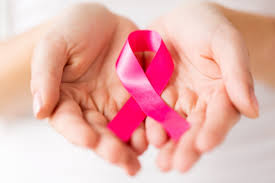Your spouse/partner has been detected with cancer. It is the last thing that you expected. It is something like realizing that an unreal thing is too real, a far off thing is too close to you and your loved one. How much you may want to push it away and reset things, the fact is that it has stepped in your life. There is a lot that you can do to make the entire process of accepting the news and the treatment easy for yourself and your partner.

The promise to love, honor, and cherish “in sickness and in health” a wedding vow is said as easily as the other vows at the time of the wedding. But when a ailment like cancer strikes it is easier said than done, but trust me such a time of turbulence will help strengthen your relationship and help you emerge as a better person.
1. Express yourself
First and foremost do not hesitate to express how you feel. The word ‘Cancer’ does not mean that everything in your life is normal, so please do not try and act as nothing has happened. Hold you partner, cry but express. Give yourself a week, ten days to come to terms with it.
2. Encourage your partner to express
No one understands your partner better than you. You understand the unsaid words of your partner but still encourage them to express themselves. Let them speak out all what they think and fear. For you can stand as a true companion only if you know the thought process of your partner.
When you get to know that your partner has cancer please don’t panic. Meet the doctors. Discuss the situation with them. Try to understand what the stage of the cancer is and how you can deal with the problem. If you panic you will not be able to support your partner. You will have to be brave and give moral support to your partner. You must assure your partner that you are there for him or her no matter what. Tell them how much you love them and care about them. Let your love be a motivation to defeat the disease.
3. Talk and mobilize your family and friends
Once you have regained control over yourself, another important thing is to let the family and friends know. The question that may cross your mind at this stage is – Why do I need to do it?
Well, it’s simple they are your family, they are your friends and there is no need to experience all the pain and anxiety all by yourself. It is obvious the word family would mean different for different people.
This is one of the most difficult things to do, but it has to be done anyways. It will not be easy to deal with suggestions and questions coming from all fronts. You may have to repeat the information with people again and again and even answer some questions you want to avoid. Just remember every person who talks to you has his own level of exposure, understanding and perception.
You would need to talk to the family and friends not only after the diagnosis but even during the treatment for people would like to know how your partner is coping up. A suggestion that works well from experience is make a call to one or two of your friends on weekly basis and let the others know about you from this person. Choose a person, you enjoy speaking to, has a positive attitude and above all who does not panic. Keep your family involved. Ask them to handle simple tasks for you like shop groceries while they do their own or get a dish when they visit.
4. Keep your partner active
Make sure that you partner is busy, involved in something and active during treatment. Following an active work schedule may not be possible but a few adjustments may allow your partner to pursue their work. Encourage your partner to move around in the house and even indulge in some form of exercise. While exercise ensures a good supply of oxygen to the body it also helps deal with the conditions like cramps. Yoga is a good option for it allows one to set their own pace and relaxes the mind in a beautiful way. Music, movies, books all can help keep your partner’s mind constructively busy. Make sure that your partner interacts with people with a positive mind set and a happy attitude towards life.
5. Keep a positive attitude
Keep a positive attitude, for your attitude will control in a big way how your partner feels. Inspirational books for you and your partner, combined activities, make plans for your future, plan a trip with convenience of your partner in mind after permission from the doctor. Speak about the happy times and talk about a long life together. Be patient and loving towards your partner.
6. You are the driver
When I say you are the driver I mean much more than just driving your partner for their visits to the oncologist, radiologist and pathologist. You will be the person responsible for the treatment of your partner, the finances, the bills, their medication, their diet, there may be days when you need to take care of even their hygiene. This would require you to make huge adjustments to your routine.
There are a number of other small things that you can do like adjusting to eating preferences of your partner, understand the physical limitations of your partner, understand the level of care that your partner needs. There may be many things that you took for granted from your partner before the diagnosis but which your partner may not be able to do during the treatment. Acceptance of the changed situation is the best thing for your partner. The best words to summarize would be by Emory Austin,
“Some days there won’t be a song in your heart. Sing anyway.”








